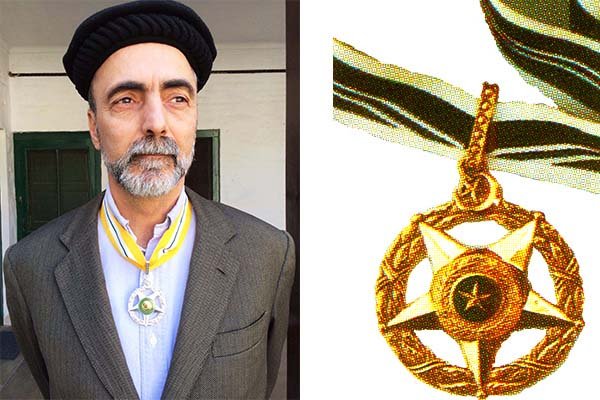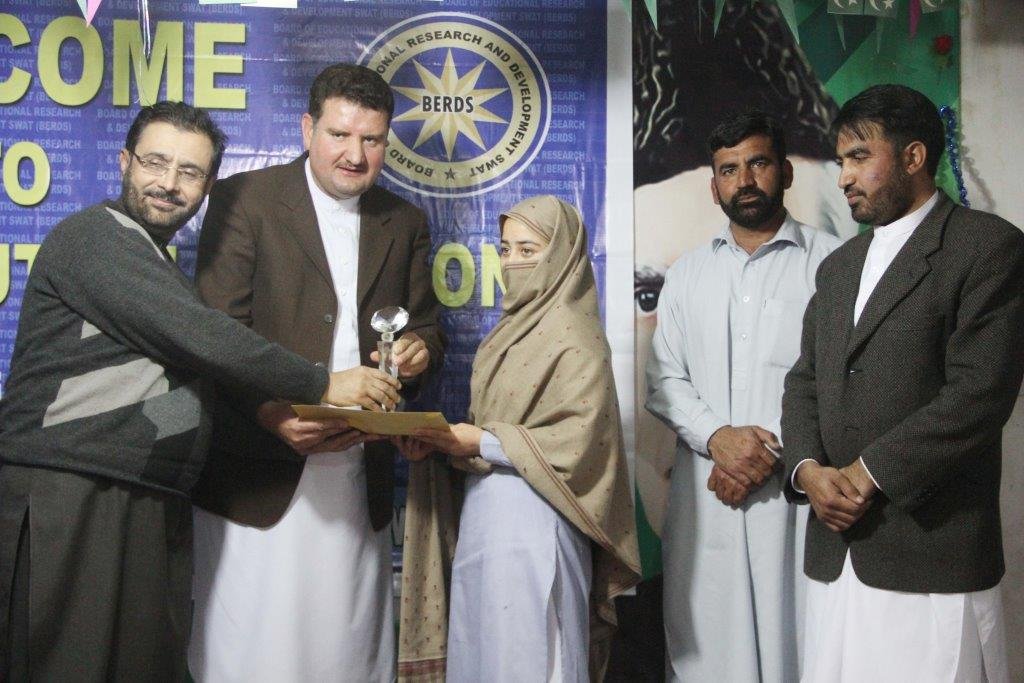By Fazal Khaliq
MINGORA: Director of the Italian Archaeological Mission in Pakistan, Dr Luca Maria Olivieri, who was recently awarded Sitar-e-Imitiaz (Star of Excellence) by President Mamnoon Hussain, called Swat his second home and said the award boosted his spirit to actively continue his research and excavation work in the future.
Dr Luca has been working in the field of archaeological excavations and research since September 1987.He considers Swat valley in particular and Pakistan in general his second home.
“I am and I will remain extremely proud of this award which represents the recognition not only of an individual activity but it also reflects the activity of the entire Italian Archaeological Mission that was established about sixty years ago in Swat,” Dr Luca told Dawn.
“I consider it a best anniversary gift that the mission has received from the Islamic Republic of Pakistan,” he said, adding that he was particularly proud that he was the fourth Italian from the Italian Archaeological Mission to receive this award from the government of Pakistan.
Dr Luca has been actively working on the archaeology of Swat valley and is considered one of the world’s most prominent and authentic researcher and archaeologist on Uddiyana. Not only has he conducted hundreds of research projects and has authored several books on Swat but he has also successfully proved internationally that Swat valley was the ancient Uddiyana kingdom and the originating area of Vajrayana Buddhism. His work follows that of other Italian archaeologists and orientalists in this area.
By now106 research reports and six books on the archaeology of Swat have been published in English language by Luca.
He gave details of some of his work. “I made more than 25 excavations campaigns in Bazira, an important archaeological site in the world, which I consider my personal project and it is really an important archaeological site in the world. My second deed is the research with Massimo Vidale on the discovery of rock paintings in Kandak and Kotah valleys. The third research, which is very dear to me, is on the Vajrayana rock carvings, where we collected information and data and documented more than 200 rock carvings. And I am particularly proud of the restoration of Jahanabad Buddha, which was defaced during the militancy. I am proud that we successfully restored it and I am sure it would be remembered forever,” he said.
He noted that the restoration of the Jahanabad Buddha was one of the most important achievements of the Italian Archaeological Mission in Swat. “The other achievement which we did and I am proud of is the reconstruction of Swat Museum and I am sure it will play a key role in the revitalization of social cohesion in Swat,” he said.
Dr. Luca also spoke about the new book he recently published that is for students of archaeology in Pakistan. That book is also available as an ebook and accessible to everyone.
“Besides one book which we published I am very much attached to is “Sir Aurel Stein and the Lords of the Marches. New Archival Materiall.” It is based on the documents discovered in Malakand regarding the early archaeological researches in Swat and Malakand from 1895 to 1933. The book is a set of about 340 documents including letters of various political agent of the British era and 12 letters of the Sir Aurel Stein when he visited this region,” he revealed.
He said that the Italian Archaeological Mission would remain in Swat as it had a lot more research and excavation field work left to do here, in collaboration with government archaeological department.
“We will continue keep on working here as we have to undertake new projects, new projections and ideas here in the Swat archaeology,” he said.
He is also happy that people of Swat have started respecting their archaeological treasures and he gives credit to the media for creating an awareness about the importance of culture and archaeological heritage among local public.
For Dr Luca, Swat has transformed a lot since he first arrived here in September 1987 when the population was small, traffic was very thin and Saidu Sharif seemed completely isolated from Mingora.
“I note that environmentally Swat has been degraded and pollution has reached a peak here but socially it has grown a lot. I must say that the seed which was planted by the rulers of the former Swat state have begun to give fruits,” he said.





